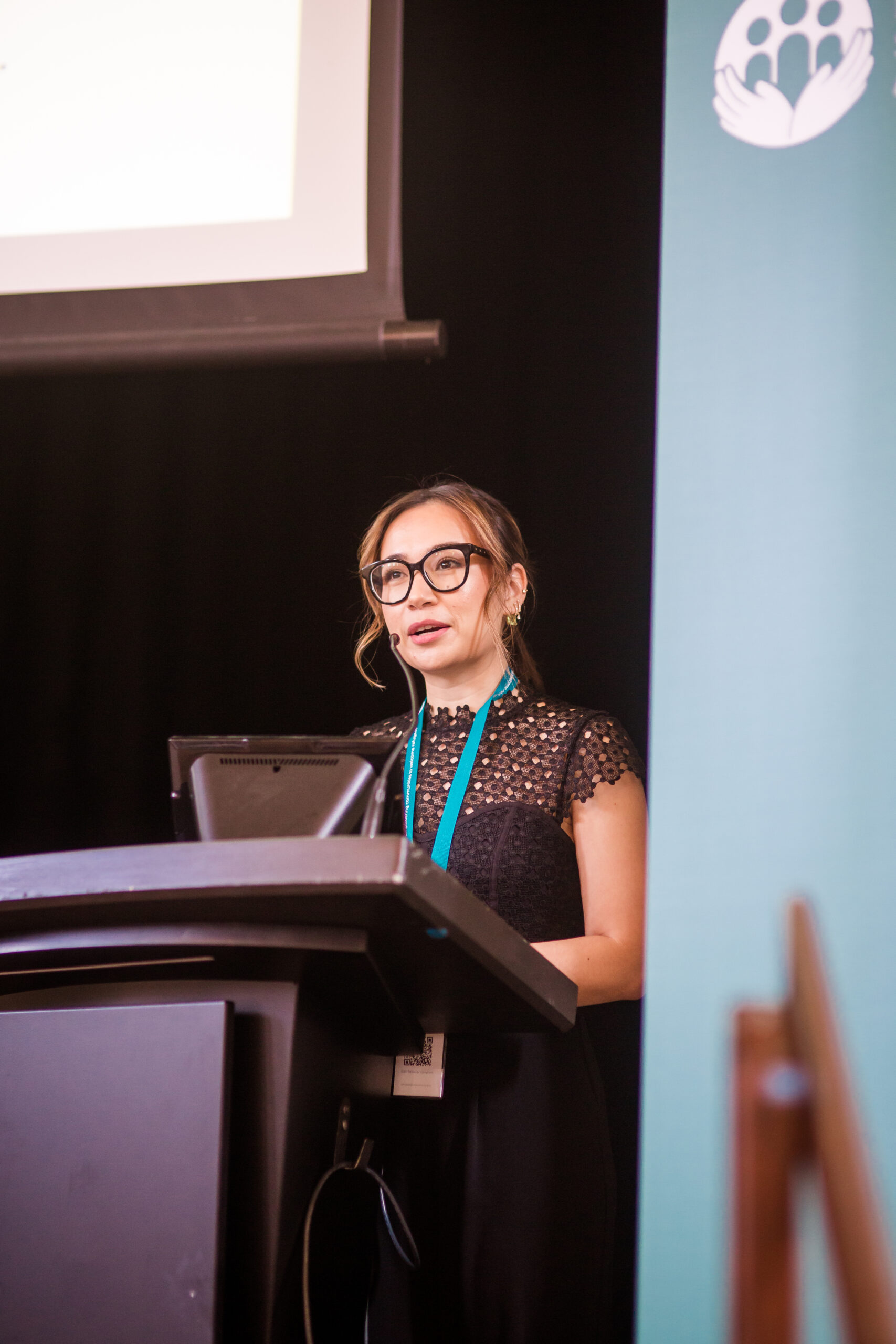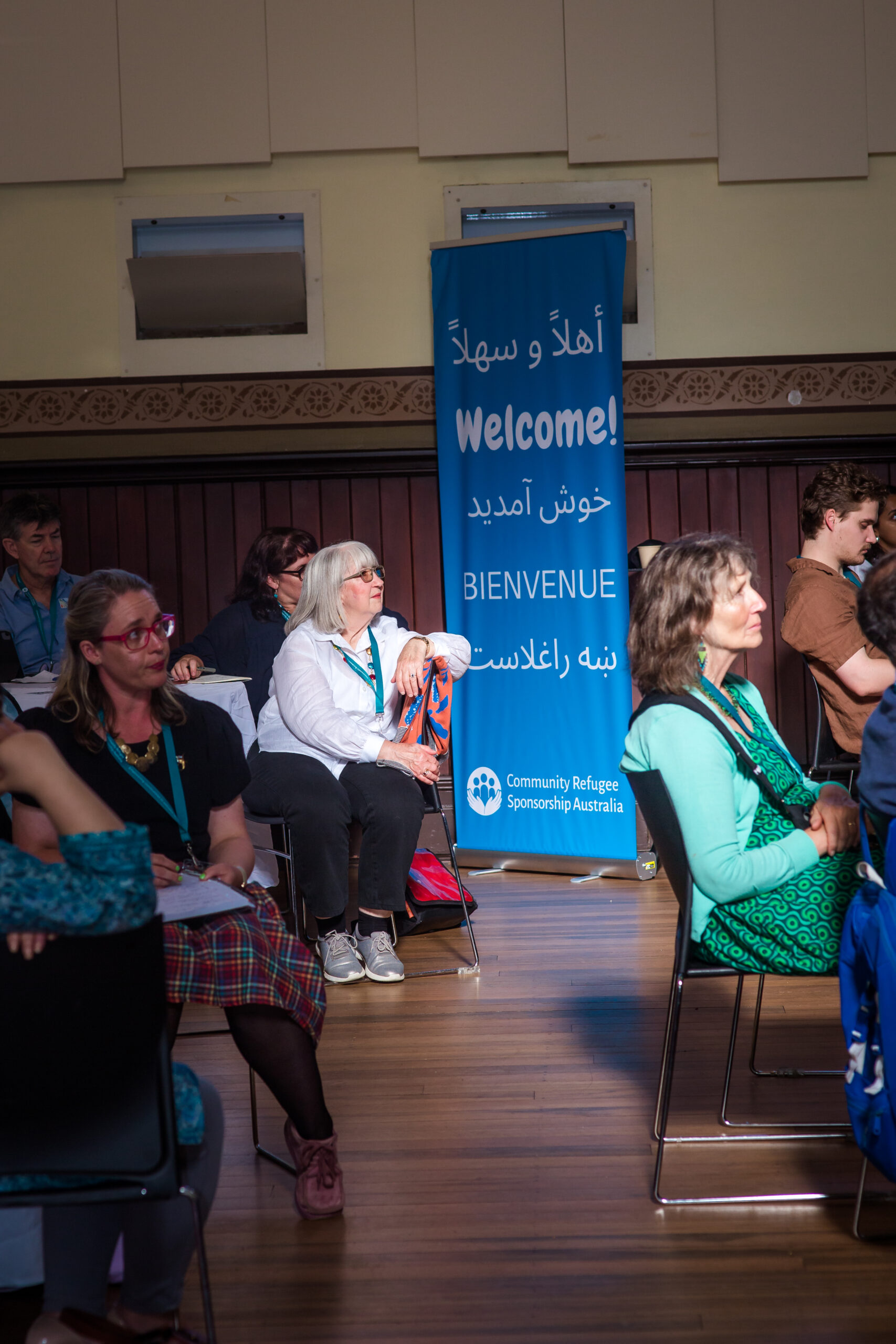Advocacy
CRSA advocates for policies, programs, and resources to ensure that community-led efforts to welcome and support refugees can grow and improve Australia’s refugee resettlement effort. Our work includes:
- Developing new sponsored pathways for refugees – Research, policy and advocacy work to develop new sponsorship streams including a new “linked” sponsorship pathway, enabling Australian individuals or entities to sponsor refugee newcomers selected by them.
- Leading innovation, collaboration and cross-fertilisation – Convening and leading sector discussions and initiatives focused on developing and scaling new complementary pathways. These include education and labour mobility schemes for refugees and how the community sponsorship model can support such pathways.
Current Advocacy Priorities
1. Advocacy for the CRISP program to become permanent and additional to the humanitarian intake quota
We continue to advocate for the CRISP to become a permanent feature of Australia’s humanitarian program We are advocating for a streamlined, and well-managed transition from the current pilot to a permanent program.
The CRISP program currently draws on visas from within Australia’s overall humanitarian quota. However, in 2023 the Albanese government increased this quota to 20,000 places per annum (previously 13,750 places per annum plus the special Afghan intake of 4,000 places per year for 4 years), partly aided by the new CRISP model. The team is proud that the CRISP is contributing to an enlarged, government-backed Australian resettlement effort. We continue to advocate for the CRISP and other community sponsorship programs to become structurally additional to the humanitarian intake quota.
We note that the Albanese government has made commitments to the principle of additionality which we hope to see realised in the near future.
2. Researching, designing and advocating for a permanent and additional ‘linked’ community sponsorship program.
CRSA is leading civil society efforts to design and advocate for a new approach to “named” or “linked” community sponsorship program – a better way for Australians to sponsor refugees known to them or identified by them. This will tap into a variety of connections and motives for more Australian communities to sponsor, including family reunion, affinity-based sponsorship, and education/skills-based sponsorship. Currently, the only program in Australia that allows this has restrictive criteria and other features that exclude many would-be sponsorships.




Recent initiatives
Submission to Humanitarian Intake 2024-25
CRSA’s submission to the discussion paper published by the Department of Home Affairs in connection with Australia’s Humanitarian Program 2024-25 can be found here. This submission elaborates on our advocacy priorities for 2024-25.
CRSA’s previous submission for the 2023-24 Humanitarian Program can be found here.
Global Refugee Forum Pledges
CRSA has been at the forefront of civil society advocacy efforts that led to the Australian government’s pledge in December 2023 at the Global Refugee Forum. The government committed to working towards 10,000 additional resettlement places per annum for refugees, using community sponsorship and other complementary pathways (see summary and ALP National Platform).
CRSA developed and launched the Global Refugee Forum Australian Community Sponsorship Pledge in the lead up to the December 2023 Global Refugee Forum. More than 70 organisations endorsed the pledge in the lead up to the forum. This pledge remains live in the lead up to the next Global Refugee Forum in 2027, so please consider adding your organisation’s endorsement.
By endorsing the Australian Community Sponsorship Pledge, you can join this growing list of organisations collectively telling the Australian government and the global community that we will do our bit to support and expand community sponsorship.
Complementary Pathways Principles
As of May 2024, there were 43.4 million refugees in the world. There is a critical global need for complementary pathways, a term used to describe safe and regulated avenues for persons in need of international protection that provide for a lawful stay in a country where they will be protected. These are different to traditional resettlement opportunities provided by resettling countries.
Refugees and others in humanitarian need have skills, educational and employment aspirations, and personal connections in Australia. Complementary pathways can help to harness these opportunities and resources to support people to come to Australia in a safe and regulated way.
Australia is piloting a range of initiatives that could be considered complementary pathways for refugees. In partnership with the Refugee Council of Australia, Talent Beyond Boundaries, the Refugee Education Special Interest group and the Settlement Council of Australia, CRSA developed the following principles as a means of unlocking pathways and ensuring consistency across policy and program design:
- A coherent national approach
- Additionality
- Durability
- Accessibility
- Supported settlement and a safety net
